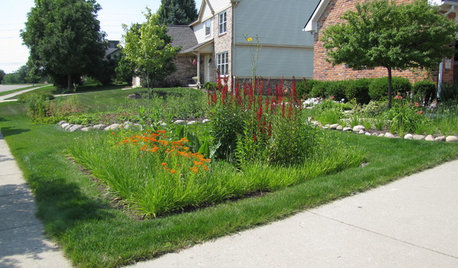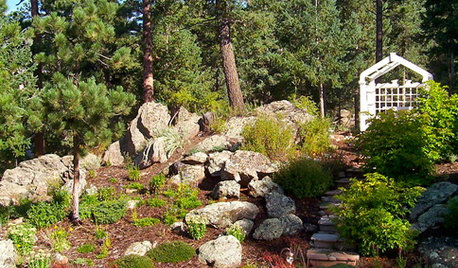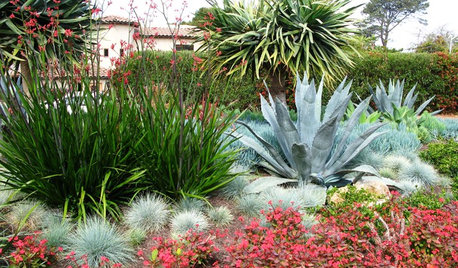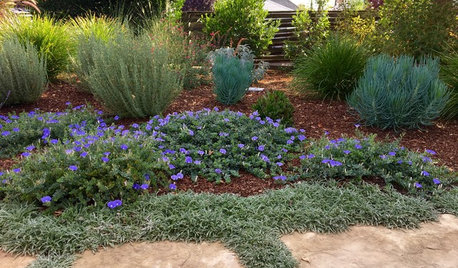soil amendments testing
CypExile
9 years ago
Related Stories

LANDSCAPE DESIGNHow to Shape a Rain Garden and Create the Right Soil for It
Learn how to grade, lay out and amend the soil in your rain garden to support your plants
Full Story
GARDENING GUIDESHouzz TV: Make a Worm Bin for Rich Soil and Happy Plants
A worm-powered compost bin that can fit under a sink turns food scraps into a powerful amendment for your garden. Here’s how to make one
Full Story
GARDENING GUIDESGet the Dirt on Your Garden’s Soil
Understand how your soil supports your plants so you can ensure your garden’s success
Full Story
GARDENING GUIDESHow to Stop Worrying and Start Loving Clay Soil
Clay has many more benefits than you might imagine
Full Story
GARDENING GUIDESGrow a Beautiful Garden in Alkaline Soil
Got alkaline soil? Learn how to manage it and the many beautiful plants that will thrive in this ‘sweet’ soil
Full Story
GARDENING GUIDESHave Acidic Soil in Your Yard? Learn to Love Gardening Anyway
Look to acid-loving plants, like conifers and rhododendrons, to help your low-pH garden thrive
Full Story
GARDENING GUIDESGardening Solutions for Dry, Sandy Soils
Has your desert or beachy site withered your gardening creativity? Try these ideas for a beautiful, easy-care landscape
Full Story
GARDENING GUIDESGardening Solutions for Heavy Clay Soils
What’s a gardener to do with soil that’s easily compacted and has poor drainage? Find out here
Full Story
FARM YOUR YARDHow to Get Good Soil for Your Edible Garden
The nutrients in your soil feed the plants that feed you. Here are tips on getting it right — just in time for planting season
Full Story
GARDENING GUIDESWhat to Do This Fall to Build Healthy Garden Soil
Take advantage of the cool season to improve soil texture and replenish nutrients
Full StorySponsored
Professional Remodelers in Franklin County Specializing Kitchen & Bath
More Discussions






toxcrusadr
lazy_gardens
Related Professionals
Wrentham Landscape Architects & Landscape Designers · Saint Charles Landscape Architects & Landscape Designers · South Orange Landscape Architects & Landscape Designers · Walnut Landscape Architects & Landscape Designers · Salem Landscape Contractors · Biloxi Landscape Contractors · Fair Lawn Landscape Contractors · Lemont Landscape Contractors · Madera Landscape Contractors · New Cassel Landscape Contractors · Pacifica Landscape Contractors · Selden Landscape Contractors · Lockport Decks, Patios & Outdoor Enclosures · Randolph Decks, Patios & Outdoor Enclosures · Rogers Decks, Patios & Outdoor Enclosuresfloral_uk z.8/9 SW UK
CypExileOriginal Author
Kimmsr
CypExileOriginal Author
CypExileOriginal Author
glib
glib
lazy_gardens
Kimmsr
glib
toxcrusadr